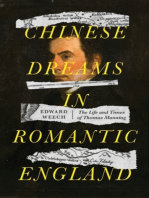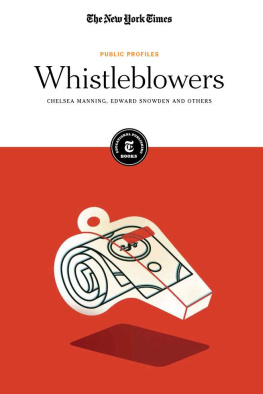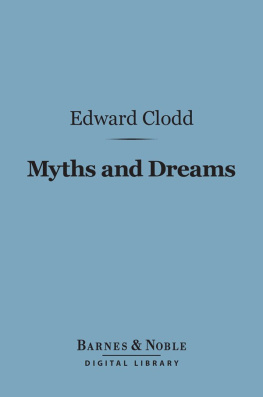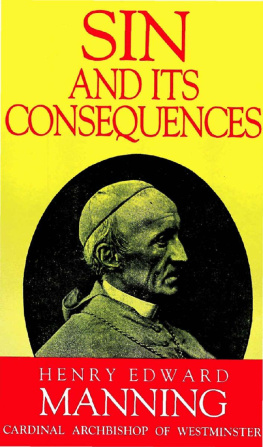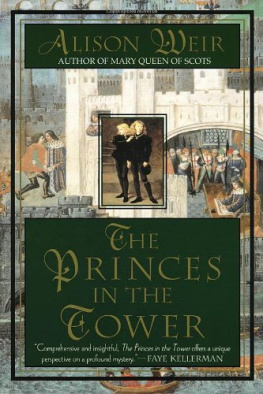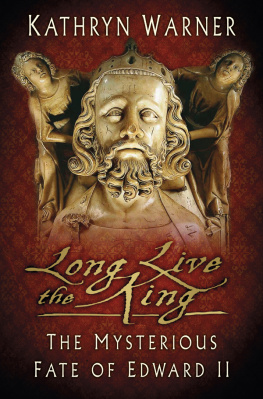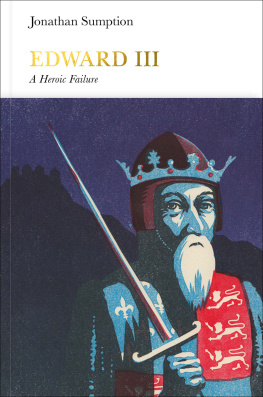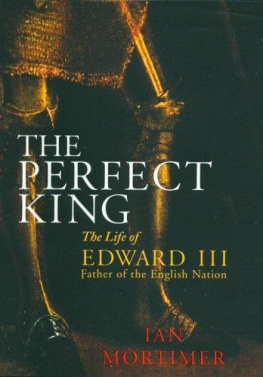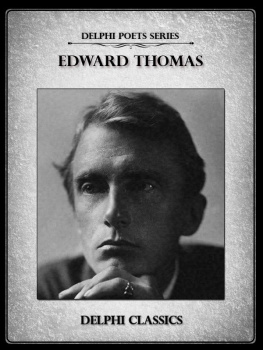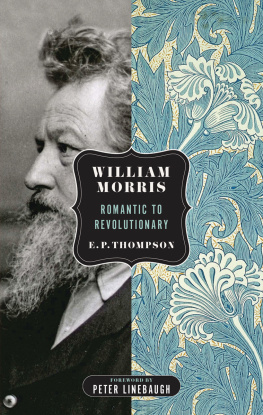Edward Weech - Chinese dreams in Romantic England The life and times of Thomas Manning
Here you can read online Edward Weech - Chinese dreams in Romantic England The life and times of Thomas Manning full text of the book (entire story) in english for free. Download pdf and epub, get meaning, cover and reviews about this ebook. genre: Home and family. Description of the work, (preface) as well as reviews are available. Best literature library LitArk.com created for fans of good reading and offers a wide selection of genres:
Romance novel
Science fiction
Adventure
Detective
Science
History
Home and family
Prose
Art
Politics
Computer
Non-fiction
Religion
Business
Children
Humor
Choose a favorite category and find really read worthwhile books. Enjoy immersion in the world of imagination, feel the emotions of the characters or learn something new for yourself, make an fascinating discovery.
- Book:Chinese dreams in Romantic England The life and times of Thomas Manning
- Author:
- Genre:
- Rating:3 / 5
- Favourites:Add to favourites
- Your mark:
- 60
- 1
- 2
- 3
- 4
- 5
Chinese dreams in Romantic England The life and times of Thomas Manning: summary, description and annotation
We offer to read an annotation, description, summary or preface (depends on what the author of the book "Chinese dreams in Romantic England The life and times of Thomas Manning" wrote himself). If you haven't found the necessary information about the book — write in the comments, we will try to find it.
Edward Weech: author's other books
Who wrote Chinese dreams in Romantic England The life and times of Thomas Manning? Find out the surname, the name of the author of the book and a list of all author's works by series.
Chinese dreams in Romantic England The life and times of Thomas Manning — read online for free the complete book (whole text) full work
Below is the text of the book, divided by pages. System saving the place of the last page read, allows you to conveniently read the book "Chinese dreams in Romantic England The life and times of Thomas Manning" online for free, without having to search again every time where you left off. Put a bookmark, and you can go to the page where you finished reading at any time.
Font size:
Interval:
Bookmark:
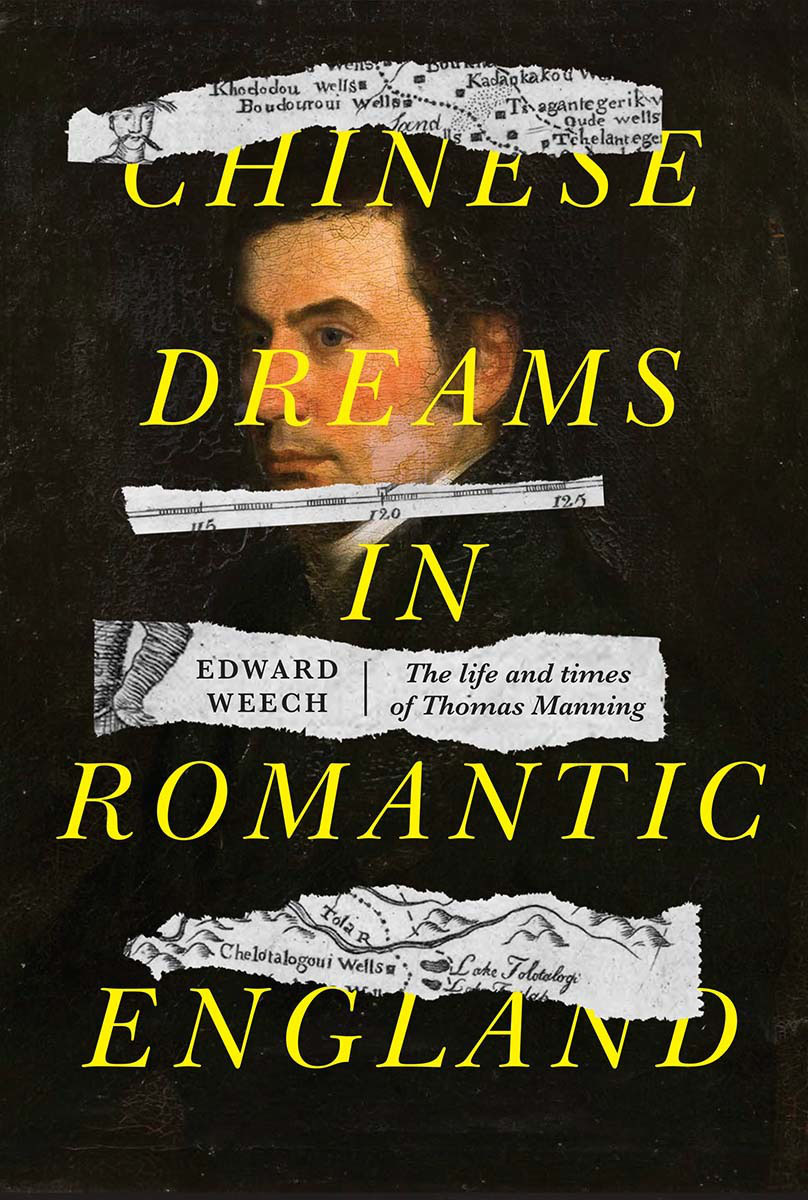
Chinese dreams in Romantic England
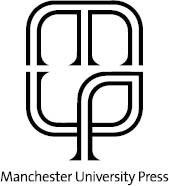
Chinese dreams in Romantic England
The life and times of Thomas Manning
Edward Weech
Manchester University Press
Copyright Edward Weech 2022
The right of Edward Weech to be identified as the author of this work has been asserted by them in accordance with the Copyright, Designs and Patents Act 1988.
Published by Manchester University Press
Oxford Road, Manchester M13 9PL
www.manchesteruniversitypress.co.uk
British Library Cataloguing-in-Publication Data
A catalogue record for this book is available from the British Library
ISBN 978 1 5261 6455 1 hardback
First published 2022
The publisher has no responsibility for the persistence or accuracy of URLs for any external or third-party internet websites referred to in this book, and does not guarantee that any content on such websites is, or will remain, accurate or appropriate.
Cover Image: Portrait of Thomas Manning, c. 1805. Royal Asiatic Society of Great Britain and Ireland.
Cover Designer: Arsh Raziuddin
Typeset
by Cheshire Typesetting Ltd, Cuddington, Cheshire
I first learned about Thomas Manning after becoming Librarian at the Royal Asiatic Society in 2014, and I am indebted to all my friends and colleagues at the RAS for the opportunity to pursue my interest in this remarkable man. I am particularly grateful to Alison Ohta, Nancy Charley, and Gordon Johnson, who have each played a key role in supporting my professional and academic journey.
Much of the research for this book was completed during my doctoral studies. I was extremely fortunate that Bernhard Fuehrer, Felicity James, Lars Laamann, Peter J. Kitson, and Gregory Dart agreed to serve as doctoral supervisors and examiners, and helped me make the most of my return to formal education. I am also deeply indebted to the kindness of Tim Barrett, Lawrence Wang-chi Wong, and Anne Lonsdale: leading scholars who have each worked on Manning, and who selflessly shared knowledge, advice, and encouragement. Other authors, academics, and editors who contributed to this book through conversation and correspondence include Stephen Platt, Eric G. Wilson, William Wilkins, James Stourton, David Stifler, Samas Weech, David G. Hughes, James Watt, Caroline Warman, Nick and Cecilia Powell, David Chandler, Peter Newbon, Graham Davidson, David Duff, Marc Pore, Laurent Folliot, Tim Fulford, Nick Hartley and many others.
It has been a great honour to meet and correspond with members of Thomas Mannings extended family, who have maintained a close interest in their illustrious ancestor and helped keep his memory alive. I am particularly grateful to Deborah, Byron, Julian, Carolyn, and Vicky. Two of my chief informants during the early stages of research were Robert Manning (who lived in Diss, the familys ancestral hometown) and Mike Manning. I regret that they are not here to see the publication of this biography, but hope it does some justice to their support.
My research involved long hours at numerous libraries and archives including SOAS Library, Senate House Library, the British Library, Birkbeck Library, Cambridge University Library, and the Library of the Natural History Museum. I am grateful to all the staff who assisted me at these and other institutions, and to Joy Wheeler, Christiane Vialelle, and Sian Phillips for their help with images.
I am indebted to the staff at Manchester University Press, especially Emma Brennan and Paul Clarke. Emmas vision was absolutely fundamental to the development of this book, and it has been an enormous privilege to work with such a creative, insightful, and inspiring editor. I am also grateful to the anonymous reviewers for their important feedback.
For years now, my research on Thomas Manning has featured in conversations with my own family and friends. Several of those who listened, advised, and encouraged me along the way are no longer here, including my mother, Theresa, mother-in-law, Charity, and two of my closest friends, Tom and Eddie. Throughout all this time, the love and support of my wife, Trinity, has sustained me: and this book is dedicated to her.
It is 17 December 1811: a week before Christmas. The scene is Lhasa, situated in the Tibetan plateau on the Roof of the World. Almost 4,000 metres above sea level, the air here contains only two-thirds of the oxygen it does in the lowlands. Anyone not acclimatized is liable to suffer from altitude sickness, developing symptoms akin to a bad hangover dizziness, nausea, headaches. At night, the temperatures are freezing, but now, during the day, it is bright and cool.
In England, the Luddite rebellions have begun, protesting the introduction of new industrial machinery amid the economic depression caused by the Napoleonic Wars, which rage endlessly on the Iberian Peninsula. These events are far from the mind of the tall, lean Englishman, aged 39, who dismounts at the foot of an enormous, fortress-like building the Potala Palace which seems to grow out of the mountain before him. The palace is the residence of the Dalai Lama: it is more than a dozen storeys tall, contains over a thousand rooms, and the outside walls of its central quarters are painted a deep crimson. The path to the entrance must be ascended on foot; it promises to be a long and tedious climb of about four hundred steps, some cut from the mountain itself.
Someone who looked closely might be surprised to discover that this Englishman is strikingly handsome. His nondescript robes and hat, along with his spectacles and long beard, go some way to disguising his singular looks and, more importantly, his nationality a subject about which he has remained strangely evasive during the few days since he arrived in Lhasa. Anyone familiar with the English would quickly identify his face and manners as belonging to that nation. Few in Lhasa have such experience: no Englishman has ever visited the city before, and no others will pass its walls for almost a hundred years. He is accompanied by a much shorter and somewhat younger man, who is Chinese. All communication with the strange traveller is conducted by way of this assistant, who claims that his master is a pilgrim anxious to pay homage to the Grand Lama. Yet the traveller shows no knowledge of the ways of the religion about which he has professed such interest, and his assistant, when pressed, makes only vague answers about which of the Western lands his master is from lands where, at this time, there are few Buddhists at all.
One who might recognize the Englishman is Yangcun, one of Lhasas senior Ambans a Chinese imperial functionary reporting directly to the Emperor in Peking. He is intimately acquainted with the English: several years earlier they had landed troops on the island of Macao, near Chinas southern coast, fearing the Portuguese colony might otherwise be captured by Napoleonic France. These unseemly shenanigans caused a diplomatic incident, during which Yangcun had represented the Chinese authorities. But the controversy occasioned Yangcuns fall from grace, leading to virtual exile in this remote posting on the fringes of the Qing Empire. While he had every reason to suspect and resent the traveller, Yangcun is old and almost blind. If he could see better, he might do more than recognize this man as an Englishman. He might identify him as Thomas Manning, one of the few Englishmen able to speak Chinese, and the very man responsible for translating imperial edicts into English during that dispute in Macao.
Next pageFont size:
Interval:
Bookmark:
Similar books «Chinese dreams in Romantic England The life and times of Thomas Manning»
Look at similar books to Chinese dreams in Romantic England The life and times of Thomas Manning. We have selected literature similar in name and meaning in the hope of providing readers with more options to find new, interesting, not yet read works.
Discussion, reviews of the book Chinese dreams in Romantic England The life and times of Thomas Manning and just readers' own opinions. Leave your comments, write what you think about the work, its meaning or the main characters. Specify what exactly you liked and what you didn't like, and why you think so.

